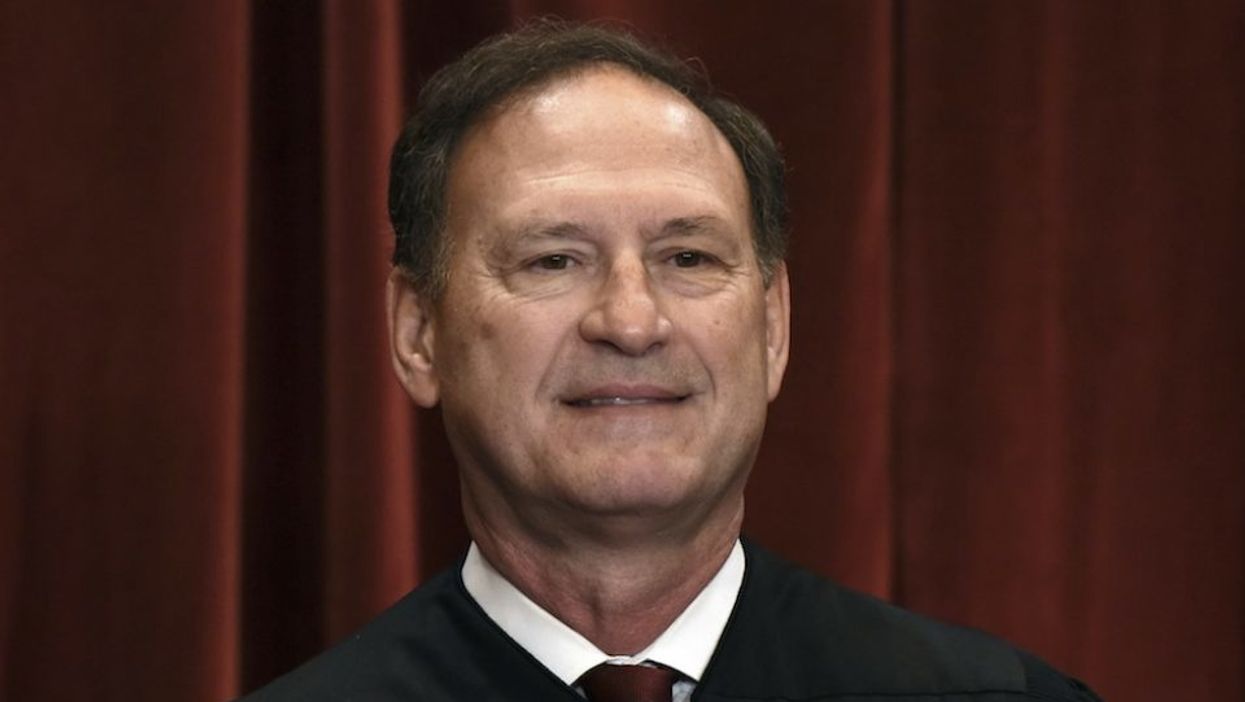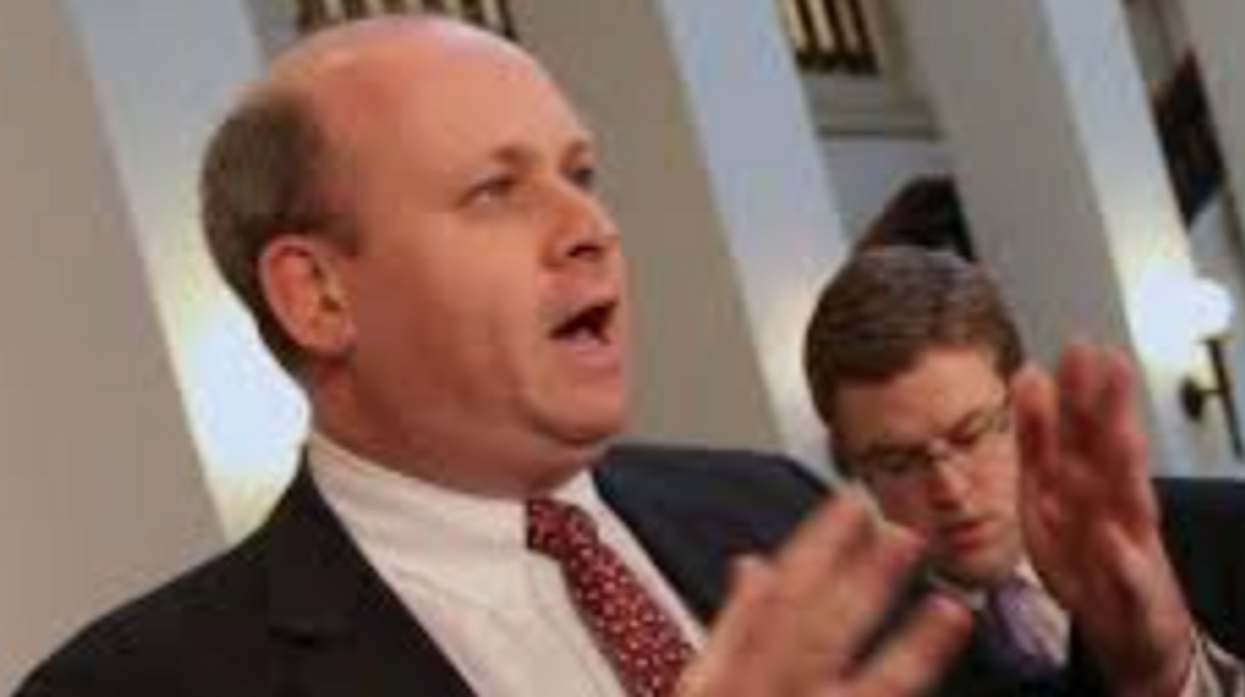The language of the voting rights movement is changing. For decades, it had been centered around overcoming voter suppression and Jim Crow, which is shorthand for intentional barriers to stymie voters at the starting line -- affecting their voter registration, their voting options, and whether their ballots will be accepted. But today, thanks to Donald Trump’s 2020 election-denying loyalists, the focus is shifting to the finish line, where counting votes is what matters.
Election subversion is the new political buzz phrase.
One day after Georgia’s May 24 primary, where 2020 presidential election deniers lost GOP nominations for governor and secretary of state, Marc Elias, the Democratic Party’s top election lawyer, posted a piece on his website: “Election Subversion Is the New Voter Suppression.” A day before Georgia’s primary, Brave New Films, a progressive documentary shop, held online screenings of its updated film about voter suppression during Georgia’s 2018 governor’s race to include post-2020 subversion by Trump’s allies. It was retitled, “Suppressed and Sabotaged.”
Just days before, a trio of pro-democracy groups, including States United Democracy Center, whose advisors include Republicans who reject Trump’s 2020 claims, issued a masterful report, “A Democracy Crisis in the Making: How State Legislatures are Politicizing, Criminalizing and Interfering with Election Administration,” which details how plans to overturn popular votes are becoming legally institutionalized. It traces how power grabs by GOP state legislators, via bills being introduced and passed since Trump’s defeat, are being woven into state law and vote-counting rules to allow hyper-partisans to intervene and tilt the results at key junctures.
The New York Times, in its Sunday, May 22 edition, cited the report in a front-page analysis affirming that nearly half of Republican lawmakers in the top swing states have already acted to subvert results. It found “44 percent of the Republican legislators in the nine states where the presidential race was most narrowly decided” used their office’s authority to “discredit or try to overturn” 2020’s presidential results. States United’s report traces their subsequent actions, pushing and passing bills to let legislators and appointees intervene to subvert election results.
The threat and terminology of subverted or sabotaged election results is meant to be jarring. It is not merely a preview of early June’s House hearings about the January 6 insurrection, which is likely to show Americans that Trump allies in Washington and the states took part in a willful, political, and likely criminal, effort to overturn the 2020 presidential election. The emergence and naming of election subversion as a deepening threat is equally, if not more so, about the future elections – in 2022 and 2024 – rather than the last presidential election.
“We have a democratic crisis in the making,” States United concluded. “All of us who care about our democracy—regardless of political affiliation—must continue to use every tool we have to protect free and fair elections in this country, and to reject efforts to undermine them.”
But a buzzphrase can lose its meaning, especially if imprecisely or overused in politics. In the above examples, subversion was cited for different purposes. Elias was sounding alarm bells, saying that Republicans have an advancing strategy and Democrats don’t yet have a response. Brave New Films cited subversion to inspire the get-out-the-vote efforts in Georgia and other states holding May 24 elections, and to push back on assertions by Georgia’s GOP that higher turnout in 2022’s early voting, compared to 2018, did not mean that the state’s Republicans were not still targeting Democrats blocs. The States United report sought to expose how Trump-inspired legislators have been using disinformation and introducing chaos into an orderly process to justify potential power grabs by their branch of state government.
Despite these analyses, elevating the prospects for election subversion in 2022 and 2024 is hampered by a problem common to many similar issues: While warning signs abound, the threat has not yet materialized. It is too early in 2022’s cycle to cite examples of Republicans subverting the popular vote at this stage in the process – in primaries. (The closest example is from Texas, where, under technicalities in a new state law, 12.4 percent of absentee ballots cast on March 1 were rejected after voters mistakenly filled out return envelopes.) The fall general election is when most electoral power grabs are likely to surface.
The Times’ May 22 analysis hinted at that reality. Its report underscored that many Republicans, already in statehouses, tried but failed to subvert the 2020 presidential results, which shows a power-grabbing mindset. Looking to 2022’s general election and beyond, the Times noted that would-be subverters have not yet reached critical mass as far as hijacking future results. “In most states, the lawmakers who challenged the 2020 results do not yet have the numbers, or the support of governors, secretaries of state or legislative leaders, to achieve their most audacious aims,” the Timessaid.
Mindsets And Actions
Still, it is undeniable that Trumpist Republicans embrace power-grabbing tactics. The Times report focused on legislators who acted to overturn the will of the people in their state. Since then, in numerous 2022 Republican primaries, many members of Congress who were elected on the same ballot where Joe Biden won – but voted to reject their state’s Electoral College slate after the January 6 riot – have been rewarded by voters. They won their primaries.
And Trump has urged his handpicked candidates to prematurely declare victory. In May 17’s Pennsylvania primary, he told Dr. Mehmet Oz, his pick for U.S. Senate, to declare victory and not wait for a recount. (Oz did not follow Trump’s script.) As the June hearings by the House’s January 6 committee approach, the panel is expected to show how scores of state and federal Republican legislators took part in a concerted but seat-of-the-pants effort to overturn the presidential election.
While the uprising may emerge as a criminal conspiracy – violating state and federal election laws in place at that time, what has unfolded in GOP-led swing states since January 2021 has been a more careful and deliberate strategy to achieve similar aims – by passing new laws empowering Republican legislators to interfere at key junctures with counting votes.
“Contrary to what some argue, I don’t expect Republican election officials to blatantly ignore the election results and declare that the candidate who received fewer votes has won,” Elias wrote on May 25. “The Republican election subversion plan is more sophisticated than that. Instead, I expect Republicans to use false allegations of fraud as a pretext to remove ballots from the vote totals and then certify those incomplete results.”
“To accomplish this, Republicans — before an election takes place — will seek to sow doubt in the legitimacy or integrity of the ballots they aim to challenge,” he continued, alluding to the role that disinformation plays in fomenting electoral coups. “Maybe they’ll say that ballots cast in a certain kind of drop box are invalid, or that ballots collected by third-party organizations are illegal, or that voters who were given food and water while waiting in line should have their ballots discarded. The list of potential unsubstantiated claims of voter fraud is endless.”
The report by States United Democracy Center, Protect Democracy, and Law Forward, further breaks down the interrelated building blocks of the subversion strategy that Republicans have been honing and putting in place since the 2020 presidential election. Unlike Trump’s sloppy post-election lawsuits, where conspiratorial claims and a lack of factual evidence led to 60-plus state and federal rulings against him, Trumpist legislators have been introducing bills, and, in many cases passing them, to usurp counting votes – which is a different strategy. (It also fits with an untested legal theory, where they claim the U.S. Constitution grants this authority.)
The groups’ report delves into little-understood details of election administration, which, in contrast to Trump’s stolen election clichés, is what makes these developments legally potent and increases the number of insider-driven tracks to subverting the popular vote. Under the modern version of Jim Crow, ruling politicians over-policed many steps in the voting process, never knowing what would have the greatest impact in any year. This post-2020 strategy takes that scatter-shot approach to ballot-verifying and counting process.
“This year alone [2022], lawmakers have introduced scores of new bills that increase the likelihood of election subversion, whether directly or indirectly,” the report’s summary said. “In some cases, the potential subversion is quite direct — for example, bills that give the legislature the power to choose a victor contrary to the voters’ will. In others, the impact is less direct but still dangerous. Some bills would introduce dysfunction and chaos into the election system and could lead to delay, uncertainty, and confusion, all of which could provide cover for subversion.”
The Blueprint
The report describes five categories of interrelated “legislative maneuvers” that build on each other and can cascade. The first is passing new laws that “would give legislators direct or indirect control over election outcomes, allowing lawmakers to reject the choice of voters.” While no such bills have become law so far in 2022, the authors state that “the fact that they are being introduced indicates that legislatures are considering the option.” However, this category includes giving legislators greater control over the statewide and county election boards that certify winners, which have become law in Georgia, for example.
The second legislative maneuver is launching post-election “audits” or reviews by partisans with little or no experience in election administration and technologies. This is where undermining public confidence and chaos via made-for-rightwing-media spectacles is a deliberate tactic.
Seventeen states saw bills to allow these reviews, which “threaten to call election outcomes perpetually into doubt. They would tie up election administrators and likely would amount to state-sponsored vehicles for disinformation,” the report said, which is what happened in Arizona, Wisconsin, and Pennsylvania. “The bills… lack standardized procedures, lack basic safeguards to protect the security of voting equipment and cast ballots, or fail to require that reviews be conducted by non-partisan election administration experts.” Post-2020 reviews did not alter any state’s presidential results but looking ahead “could be used to illegitimately delay certification of results, opening the door to conspiracy theories and subversion.”
The third maneuver is “shifting power from professional election administrators to partisan legislatures or legislatively appointed officials,” the report continued. This tactic would disrupt how the legislative and executive branches of state government function.
“It is traditionally the role of the state executive branch to appoint election officials, issue more granular regulations, and administer elections according to the rules set by the legislature. Among other benefits, this traditional allocation of power allows election administrators to respond to changing circumstances and exigencies,” it said. This cooperation is what happened in 2020 when public health and election officials collaborated to make voting safer during the pandemic by encouraging voters to use mailed-out ballots – which Trump assailed.
Intentionally disrupting these roles, where legislators with little nor no experience managing elections start imposing administrative decisions that run counter to the best practices of civil service election professionals, leads to the fourth category of overreach, “creating unworkable burdens in election administration.”
“We are seeing a wave of legislation that interferes with the most basic routines and procedures of local election administrators — such as voter roll maintenance, testing election equipment, and tabulating ballots — in ways that impose new, unworkable burdens on them,” it said. “One particularly dangerous flavor of these bills, under consideration in six states, would require all ballots to be counted by hand, practically guaranteeing delays, higher rates of counting error, and increased risk of tampering by bad actors.”




